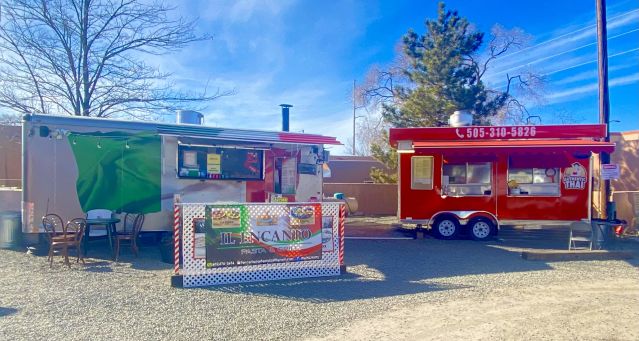Social Life
Why Should You Try Food Truck Travel?
A Personal Perspective: You may get much more than a meal at a food truck.
Posted February 21, 2024 Reviewed by Abigail Fagan

As a travel journalist, writing about Yap, Vanuatu, and Gazientep, I became painfully aware that many people cannot travel. Either they don’t have the means, the time, or the relief from responsibilities, but the only kind of travel they can do is vicariously through media.
Recently, I have discovered that no matter what obstacles are in your life, you can still travel to exotic climes for a fraction of the cost of your monthly cell phone bill. It does, however, require a little bit of advanced planning. First, you have to have curiosity about other cultures and people from these cultures. Second, you have to be willing to ask a few questions. Third, you have to realize how good it is for your mental health to learn about things beyond the latest blip or emotional explosion in Washington DC. Fourth, you often need some kind of vehicle or access to transportation unless you can travel on foot.
Your destination is some of the food trucks wherever you live. Once, not too long ago, they were oddities that popped up here and there. Now, they are staples of the food scene wherever you are. They may be grouped together in one geographical locale, or they may be spread out throughout the city. You can search for a list of local food trucks online, or you can ask people you know who frequent food trucks. If you’re really adventurous, you can just drive around until you find a food truck, give it the sniff test, and decide if you do or don’t want to eat there. If not, then drive until you find the next truck.
You may be asking why you would want to go to a food truck if the weather is bad and you have to sit outside. If you are in a car, consider the dashboard your Smorgasboard and, equipped with fork and napkin, you can eat comfortably behind the steering wheel.
If you want to travel, then it is preferable to choose food trucks that offer food from other countries or cultures. You may want to try Pupusas from El Salvador, pasta from Italy, a burrito from Mexico, Cajun catfish, or a kebab from Turkey. When you eat the cuisine of another place, you are also tasting its culture. You can learn a lot about the history of a country by understanding which wars or occupations or migrations brought new flavors to the dinner plate.
But there is more to food trucks than food. The people who prepare the food are very often from other countries and they love telling you about where they come from, where they learned to cook, and what are the specialties that their country serves up. All you have to do is ask. You will likely be engaged in a conversation that will open the doors of your mind and make you feel like you already visiting another place. Sometimes the cooks are busy because there’s a long line waiting for food, so you may want to go at a less popular hour or hang out for a while until the line has thinned.
But that’s not all. I have found that people waiting for their food at the food truck often come from the country of the cuisine being offered or they may come from other countries. And I have never encountered a situation where they didn’t want to talk about where they came from. I have met delightful, funny folks whose lives are very different from my own – which is what makes them interesting. I know about my own life. I want to learn about other lives in other places, and what they value and hold dear. I met a man from Mexico whose daughter was training to be a ballerina, and his wife was obsessed with curtains. At first, he thought it was an annoying preoccupation, but he changed his mind when she turned it into a thriving business.
I met a young woman from Slovakia, who talked about gender politics, and a young man from India, who was actively engaged in the struggle for fair wages in the food industry. I exchanged phone numbers with a young person who claimed they had a gift for healing through massage. I sat next to a woman from Nigeria, where I lived briefly many years ago. She was from the Yoruba tribe and we talked about fascinating mythological characters in the culture.
And I have had several conversations about mental health. One local woman confided in me that she had been dealing with depression, and she had isolated to the point where she almost never saw anyone. Now she goes to food trucks several times a week, and she talks to people, just like she was talking to me. She said she found it helpful to focus on something besides how she felt at any given moment. It pulled her outside of herself, and she liked the fact that she could talk to others who had no idea about her past or her struggle.
If you’re curious about the food, the people who prepare it, and the people who eat it, you may visit a food truck and get much more than a meal.


